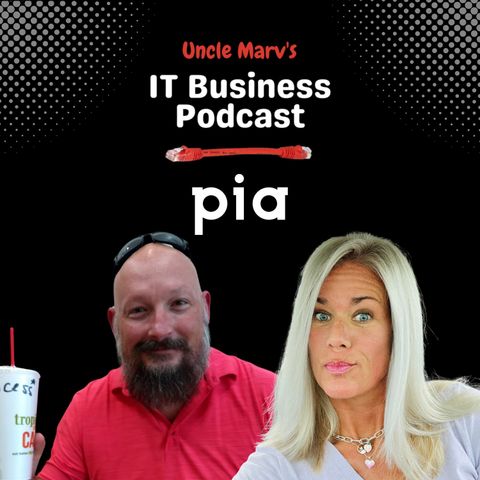Strap in for a strategic deep dive into the world of help desk management, where I reveal how transitioning to a specialized team structure can turn your service from satisfactory to exceptional. We navigate the shift from generalist to niche expert pods, ensuring that your team is not just dealing with the day-to-day but excelling in their specialized fields, from healthcare to banking. It's more than just technical know-how; it's about crafting a client experience that sticks, and I'm spilling the beans on the tools and tactics that can get you there. Brook and Coach start by discussing the different approaches MSPs can take when formalizing their help desk operations. Brook Lee emphasizes that there is no one-size-fits-all solution, and the approach should be tailored to the size, maturity, and client needs of the MSP. Outsourcing the help desk can be a viable option, especially for smaller MSPs where the technicians are often out on-site with clients. However, Coach cautions that outsourcing comes with its own financial considerations and that partnering with another solo technician can also be an effective interim step before building an in-house help desk. Regardless of the approach, they both agree that establishing clear processes, procedures, and standard operating procedures (SOPs) is crucial. This "tribal knowledge" needs to be documented so that new hires or outsourced providers can quickly get up to speed and provide consistent support. As the MSP scales, the panel discusses the benefits of transitioning from a single help desk queue to a more specialized, tiered model where technicians can focus on their areas of expertise. This not only improves efficiency but also allows the MSP to charge higher rates for their specialized support. The discussion then turns to the importance of using metrics and key performance indicators (KPIs) to drive help desk efficiency. Brook and Coach share strategies for setting realistic service level agreements (SLAs) and using automation to escalate tickets that are at risk of missing their SLAs. They also highlight how these metrics can be used to motivate and upskill help desk technicians, rather than just as a punitive measure.Wrapping things up, we talk numbers—but not just any numbers. We're focused on the KPIs and SLAs that will make or break your help desk's reputation for rapid and reliable service. You'll walk away with actionable insights on nurturing both employee satisfaction and customer loyalty, guaranteeing a win-win scenario for your MSP business. Key Takeaways:
- There is no one-size-fits-all approach to help desk operations; the solution should be tailored to the MSP's size, maturity, and client needs
- Establishing clear processes, procedures, and SOPs is crucial for scaling help desk operations
- Transitioning to a tiered, specialized help desk model can improve efficiency and allow for higher billing rates
- Metrics and KPIs should be used to drive help desk efficiency and motivate technicians, not just as a punitive measure
Links from the show:PIA website:
https://pia.ai/Florida Man Accused of using kids to collect money for fake charity:
https://tinyurl.com/yctme4p3 === Show InformationWebsite:
https://www.itbusinesspodcast.com/Host: Marvin BeeUncle Marv’s Amazon Store:
https://amzn.to/3EiyKoZBecome a monthly supporter:
https://www.patreon.com/join/itbusinesspodcast?One-Time Donation:
https://www.buymeacoffee.com/unclemarv=== Music: Song: Upbeat & Fun Sports Rock LogoAuthor: AlexanderRufireLicense Code: 7X9F52DNML - Date: January 1st, 2024


Commenti